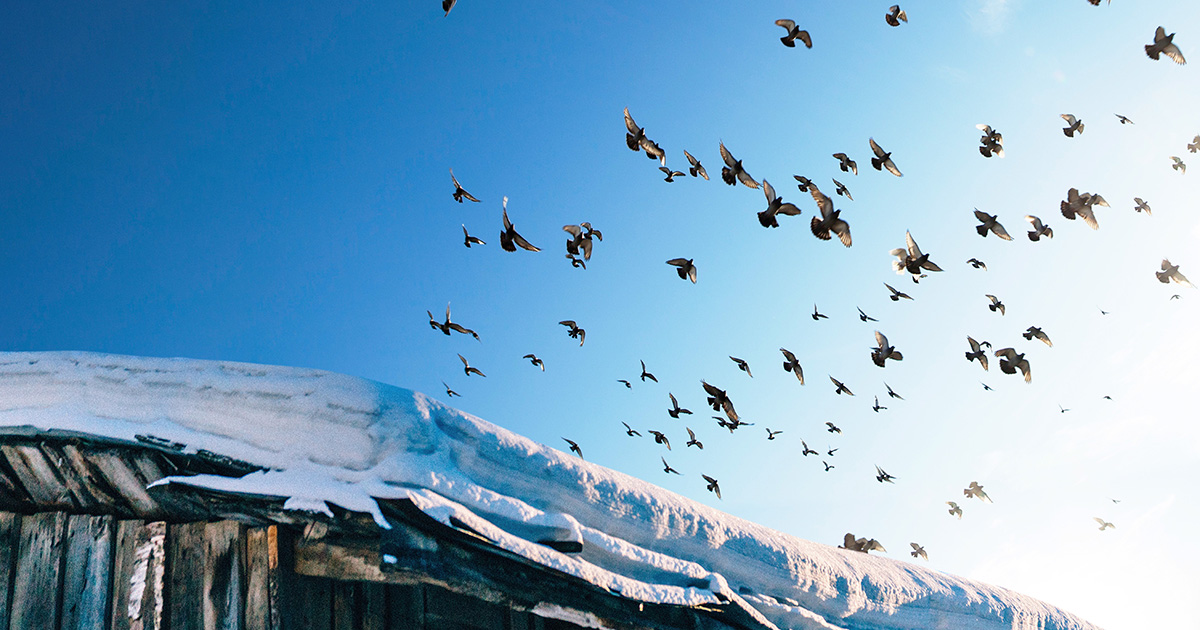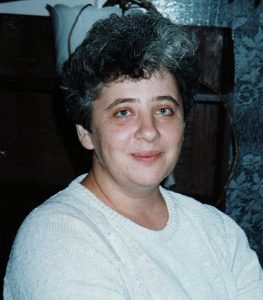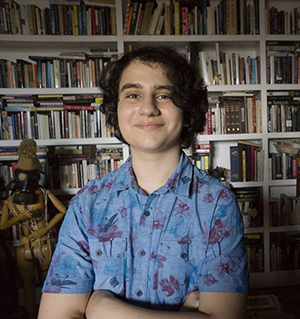BLOOM
★ ★ ★ ★
MOTHERLANDS

By Daniel Blokh
I have always been fascinated by my mother’s life. Born in Moscow when the Soviet Union was under Khrushchev, she grew up in a setting unimaginably different from mine. She would walk around the busy Red Square, visit theatres and exhibitions, then go to a market to buy oily fish and dark bread and delicious apples, everything fresh because there was no room to store it for long. I don’t even have to listen to her; the inflections of her voice alone convey how much she loved that world, a place so different from the one we live now.
When my mother was 35, her husband (my father) received a job offer from America. Jews were often turned away from jobs in Russia, and though my dad was a talented mathematician, he had to work as a poorly paid programmer. The job offer in America would give him the opportunity to do what he truly wanted, and be paid well in the process. My mother feared leaving her motherland, full of friends she had grown up with and streets she knew like the back of her hand. But she was also aware of Moscow’s drawbacks. She knew her children would have to grow up in a tiny, cramped apartment, go on to earn pennies and wait in line for hours to get food, just as she did. She loved her country, but the state of the nation was very tense, and she could not be sure of her children’s safety. After careful consideration, she took her two young children and went to the new country with her husband.

I cannot imagine the difficulty of this move. To me, the loneliness that would come with seems unbearable. Leaving her country meant leaving everyone and everything she knew, and though my father had a guaranteed well-paying job here, she, a teacher who knew no English, did not have many opportunities. She didn’t have the same financial freedom, the same independence. For years, she worked at nurseries, cleaning babies’ diapers alongside people who didn’t respect her, who treated her like a “crazy Russian.” As the years passed, she accustomed more to life here; she got a job teaching Russian at a school, and her children found a school they felt happy and accepted in. But I know this did not make being away from the country of her birth any easier.
So, when I was born, my mother raised me the only way she could. I grew up watching Russian cartoons, eating Russian food, speaking Russian as my first language. I was surrounded by the culture of a country that was oceans away. I am incredibly grateful to her for the way I grew up, because it has informed so much of who I am today. But when my friends discuss their childhoods, recalling shows they once watched, books they were obsessed with, foods they loved, and experiences they shared, I’m not able to relate. I am an American, but I grew up a Russian.
Hearing about the modern conditions in Russia, I am glad to have grown up far away, and I think my mother shares this feeling. Immigration is one of the most difficult concepts to explore for this reason; it can leave one homesick and missing their motherland, and yet, there is usually a reason it was left behind. Though my mother tells me of the wonderful experiences she had in Russia, she also tells me that it was a place of corruption and constant discomfort, a country where, as my mother describes it, “there was never certainty of a tomorrow.” She’s told me stories of government corruption, of an atmosphere of lawlessness and constant judgment, of being told every citizen had to sacrifice their own freedoms and rights in order to benefit the collective. When my mother tells me about the modern state of Russia, she seems happy to no longer be in that country.
And yet, some nights, she dreams of the dacha (vacation house) she left behind, imagines the looming berezy (birch trees), the miles of snow that could never touch Alabama. It was the land of her youth, the land of her birth, the mother land. More than twenty years have passed, but she still misses it. In an odd way, I sometimes feel like I do to.
The poem I’ve attached, Mother Retraces, was a reflection on the questions immigration raises. For my immigrant mother: can the place she did not grow up in feel like home to her? And for me: do I find myself more connected to the country I grew up in, or the country I grew up with?
* * * *
Mother Retraces
There is a river between here and Moscow.
It has existed for centuries, mostly undiscovered
but for my mother and I, who now sail
through it on our kitchen table.
I close my eyes to the salt-water spray and listen
to her voice echo across the waters
beside me. This time she is promising wild swaying woods,
and birds like you wouldn’t imagine. Look, those are my old footsteps
in the water! She says, and I see them,
don’t even have to look. The buildings there are so beautiful.
You can almost see from here. All us kids used to play
in the street around them. It’s true, of course, wasn’t I
there?
I am there, she whispers, and before I open my eyes
I am there with her. I am there, I am there, I don’t
even have to look. Those birds above us are so bright,
so big, like planes.

Daniel Blokh is a 15-year-old writer living in Birmingham, Alabama. He is the author of the memoir In Migration (BAM! Publishing 2016) and the micro-chapbook The Wading Room (Origami Poems Project 2016). His poetry chapbook, Grimmening, is forthcoming from Diode Editions in 2018. His work has been recognized by the Scholastic Art and Writing awards and the Foyle Young Poet awards, and has appeared in DIALOGIST, Gigantic Sequins, Forage Poetry, Avis Magazine, Thin Air Magazine, Cicada Magazine, and more.
























Moving is a big step. Especially when you’re moving to another country! A totally different culture has a huge impact on your life. Interesting that you were raised Russian in America. Love your poem!
Wow! Your mother’s life story is really touching. But I am glad she fought and persisted in what she wanted to do in her life. Her profession is so significant, and I am glad she continued working as a teacher. Moving from one part of the world to another is very tough, but being stubborn enough will undoubtedly pay off.
Your mom story and passion for life is inspiring! As someone who migrated from my country of birth, I can relate to your story and find it so cool that your mom made sure you didn’t miss out on the Russian culture. Having roots we can relate to is so important. Congrats on your accomplishments by the way! Love your bio.
such an amazing story , one that should be copied into every ones life, what you want is a must for one to achieve so long as its positive, and at the end of the day, success comes from it all. change of location is always a big issue but dealing with it this way is even more so important. Hugs from here.